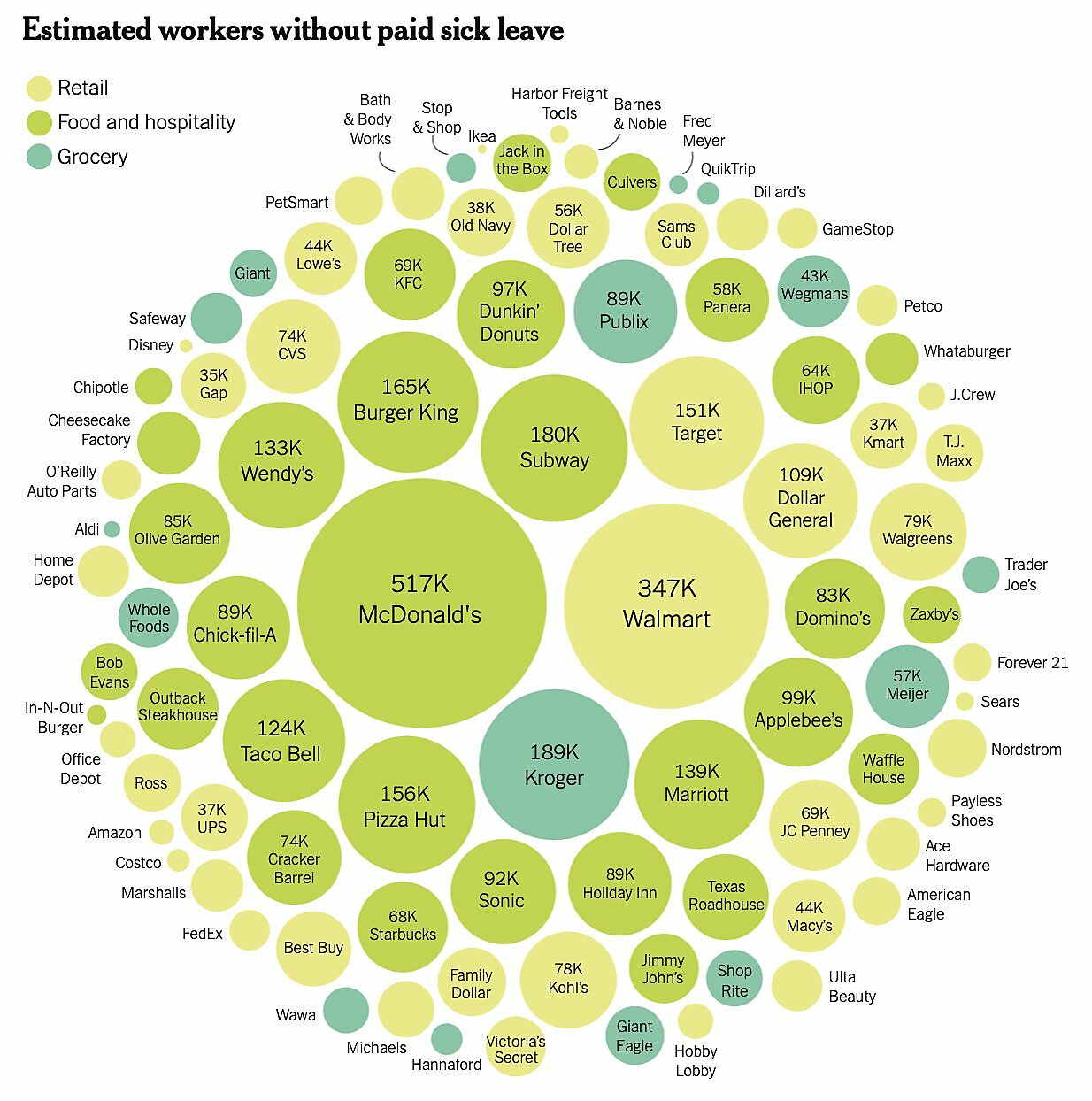Libertarians might disagree on the correct economic response to the coronavirus. It’s a gray area – with difficulty assessing where “public goods” interventions end, in light of a pandemic and failure to insure against it, and where heedless market-distorting bailouts begin. But we can all agree on one thing: now is the worst possible time for new government labor mandates on business.
Yet that is what Democrats want to do for many of America’s largest service sector employers. Faced with New York Times criticism of Congress for failing to negotiate for employer-paid sick leave in companies with more than 500 workers, House Leader Nancy Pelosi retorted:
I don’t support U.S. taxpayer money subsidizing corporations to provide benefits to workers that they should already be providing. House Democrats will continue to prioritize strong emergency leave policies as we fight to put #FamiliesFirst…Large employers and corporations must step up to the plate and offer paid sick leave and paid family & medical leave to their workers. Both now as we fight the #coronavirus and in the years to come. #COVIDー19
There are many downsides to sick leave mandates in normal times. In the long run we’d expect employers to adjust for a paid-leave mandate by offering lower wages or other benefits, such that workers’ total compensation remains unchanged. In the short-run reality, when wages are stickier, they encourage job and hours cuts, as Aaron Yelowitz and Michael Saltsman write here.
So advocating this mandate when service-sector businesses already see demand cratering and their supply-chains disrupted seems utterly destructive. Pelosi is, in effect, saying that the full near-term costs of discouraging the spread of the virus through isolating sick employees be borne by large companies, rather than taxpayers. It’s difficult to think of a quicker way of turning what’s (hopefully) a temporary shock for businesses into an unemployment problem.
This is particularly so when you look at the large companies who would be affected. Yes, Walmart should largely see demand hold up. Some restaurants will switch effectively to home delivery. But major employers currently not covered include companies such as Subway, Marriott, Holiday Inn, IKEA, Oliver Garden, and Nordstrom (see graphic below) – all of whom will see big downturns in revenues as voluntary and coercive social distancing ramps up. Food and hospitality industries, in particular, operate on very low profit margins. Increasing their cost base through these mandates could put some in severe trouble.
Ideally we wouldn’t have laws applied differently to small and large businesses. If paid sick leave for employees of small firms is considered so essential for emergency public health reasons that it must be covered by the federal government, it doesn’t make much sense to argue large businesses should instead be mandated to fund it themselves. Particularly when the consequences could be a spate of layoffs from firms already struggling today.

